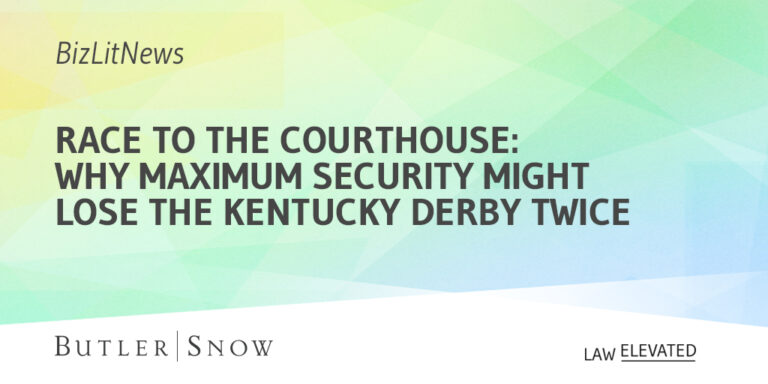For 22 minutes, Maximum Security and owner Gary West were winners of the 145th Kentucky Derby. The horse led almost the entire race, but he never wore the rose blanket reserved for Derby champions. He won the West family more than $600,000 in his first two years of racing and was set to win them millions more before he was disqualified from the Derby. Instead, the Kentucky stewards reviewed the film and ruled that he finished 17th. They elevated second-place Country House, a 65-1 underdog, to the podium. In its first 144 years, the Derby had never been won by committee vote. Why change now?
Many horse races are decided by the stewards of the track where they run. While the practice is common, the 145th Derby was the highest profile official ruling in horseracing history. Maximum Security was accused by multiple jockeys of leaving his lane, a violation of racing rules that interfered with the horses behind him. Jockeys and horses are responsible for maintaining their lane, and teams that veer off are subject to losing races that they appear to win. The penalty is called “interference.”
Interference is a safety rule, designed to protect horses and jockeys in a sport that is notoriously dangerous. Across the country, horses are named the winner of a race that another horse ran faster because they interfered with their competitors. In 1973, a Colombian jockey filed an interference complaint against his brother who was riding another horse. The offending jockey had to translate the complaint of his non-English speaking rival to the stewards, who then took his win away and gave it to his little brother. Maximum Security’s frustrations probably pale in comparison, and video of the Derby shows that he did leave his lane and cause other horses to slow down or collide with competitors.
The stewards, while subject to harsh criticism here, are not amateurs. All three of the stewards from this year’s Derby have spent years around horse racing, and they enforce the same rules for each race, regardless of the stakes. On May 4th they were put in a no-win situation. If they sided with Maximum Security, the race would become too big to fail, and next year’s running could have been renamed the Demolition Derby. If they sided with Country House, they risked alienating the millions of casual fans who tune in each year to watch the fastest two minutes in sports. They sided with safety, and in doing so, moved millions of dollars from one owner to another. West was, to put it mildly, upset.
So, what’s a horse to do? West filed an appeal with the Kentucky Horse Racing Commission the day after the Derby, claiming that the stewards’ decision was “arbitrary and capricious,” and asking that Maximum Security be put back in first place. Before the day was out, the Commission denied his appeal, stating that the stewards’ decision was final and that they had no system in place to hear appeals. West, not to be deterred, filed suit in the Eastern District of Kentucky’s federal court on May 15th. He alleges that the Commission violated his Due Process and 14th Amendment rights, common claims against government agencies who may have overstepped their bounds.
Casual observers new to horse racing and the court system may find this intriguing. Someone having their day in court is just as American as the Derby. However, administrative agencies like the Kentucky Horse Racing Commission are notoriously difficult to sue. West first had to exhaust his options with the Commission, which he did by filing his appeal with them. Now, he must convince a court that the decision to disqualify Maximum Security was not based in evidence and should be changed. This is unlikely given that courts are extremely deferential to agency decisions and Maximum Security’s lane interference is almost universally agreed upon by experts in the sport. Notably, West takes issue more with the lack of an available appeal and how the factual record was established, and less with the actual lane interference that occurred on the track.
Complicating matters is the language of KHRC Form 25-01, the licensing application that West completed to enter Maximum Security in the Derby. West agreed when he signed the form to “comply with all… steward’s/judge’s directives related to Kentucky racing.” This language allowed the Commission to deny his appeal without considering it and may be strong enough to keep a judge from reviewing the case at all. West will have his day in court, but it could be as short as the Derby, and end the same way—without a win for Maximum Security.
Authored by: Andrew D. Tharp
